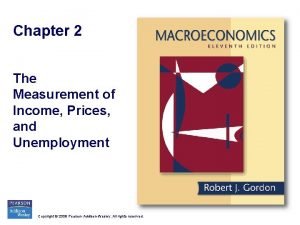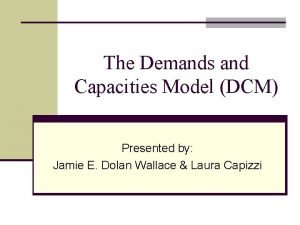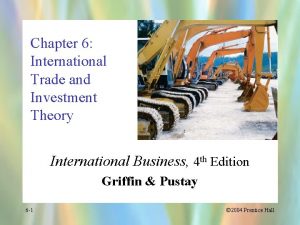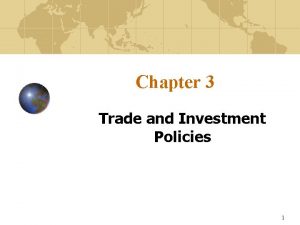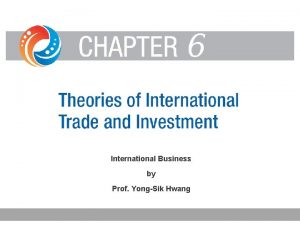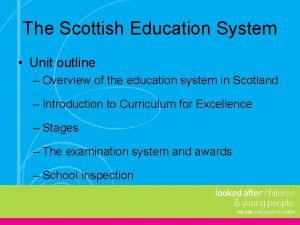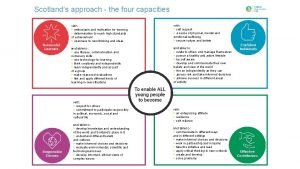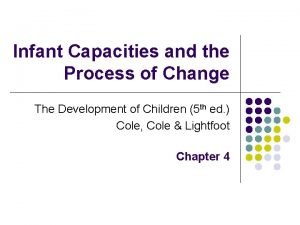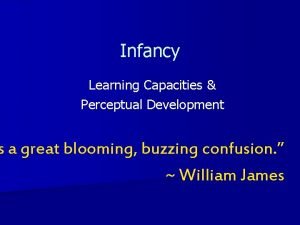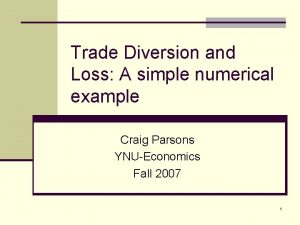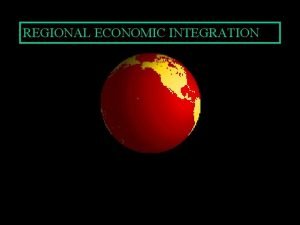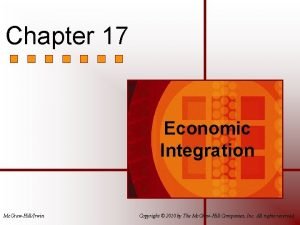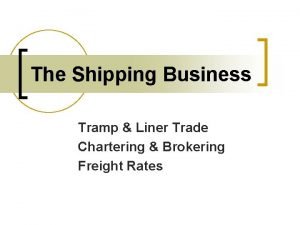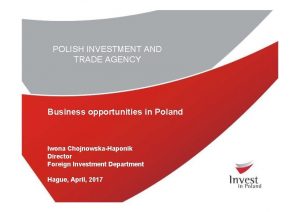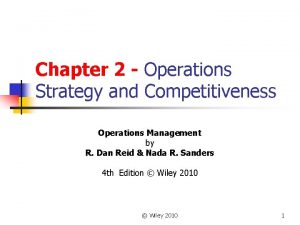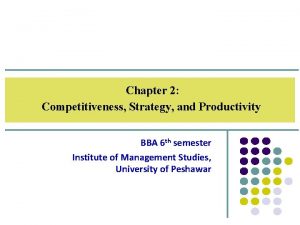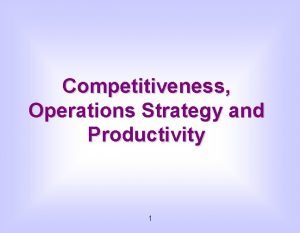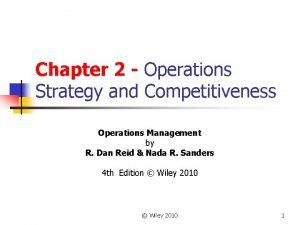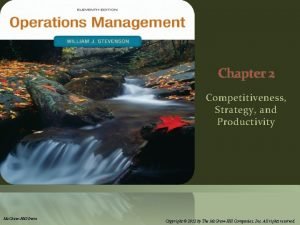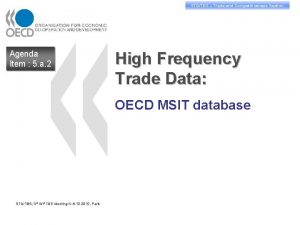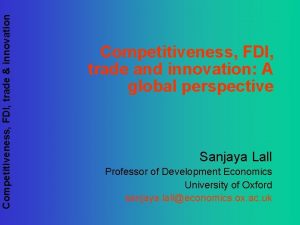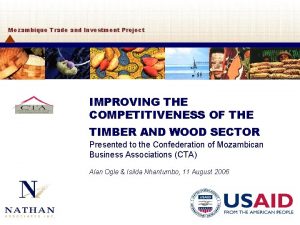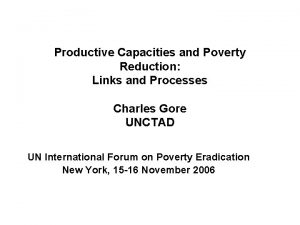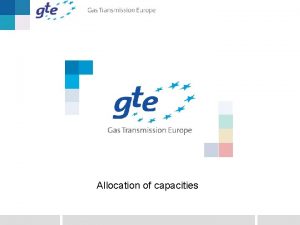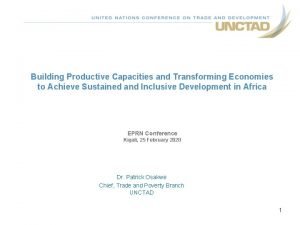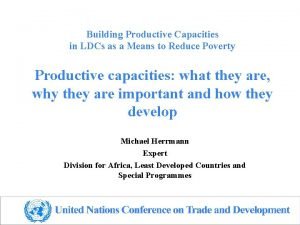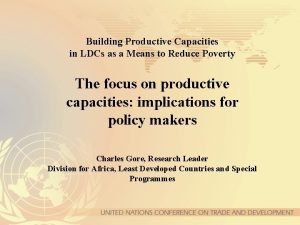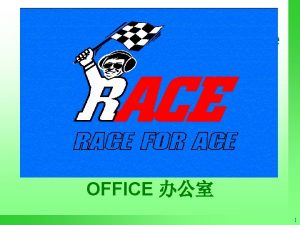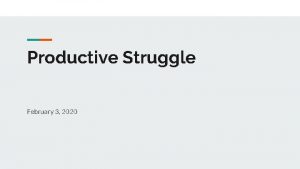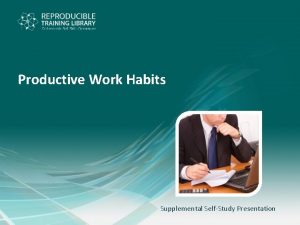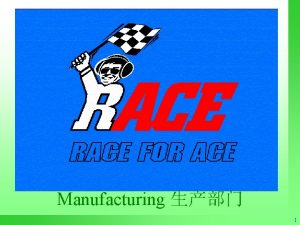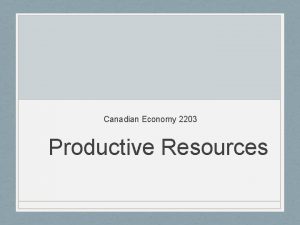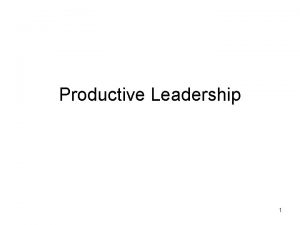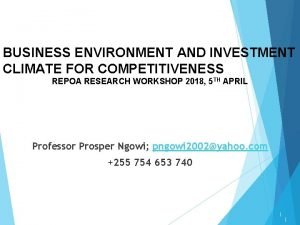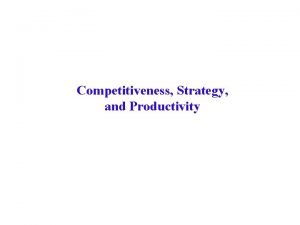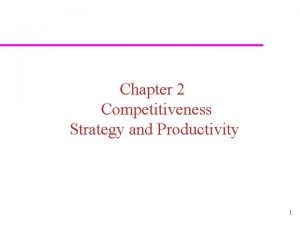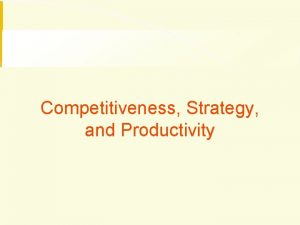Improving Trade Competitiveness Productive Capacities and Investment Climate



























- Slides: 27

Improving Trade Competitiveness, Productive Capacities and Investment Climate of Landlocked Developing Countries (LLDCs) Zambia’s Experience Robert K. Sichinga, MP Minister of Commerce, Trade and Industry 14 th September, 2012 Almaty, Kazakhstan

Presentation Outline 1. Introduction 2. Value Addition 3. Diversification/ building of productive capacities 4. Addressing the supply side constraints to enhanced efficiency and reduced costs; 5. Outstanding Challenges; 6. Conclusion/Way Forward

Introduction Structural Transformation- An absolute necessity; Most LLDCs have been principally suppliers of raw materials/commodities which were then value added in today’s developed countries especially the Colonial Masters; This explains the low value of exports; Exports/imports routes to the sea primarily developed to ensure delivery of raw materials to oversees countries for value addition; This explains why developed countries account for higher value;

Introduction (Cont…) LLDCs to import finished goods from the colonial masters, hence trade routes not well developed for imports nor intra-regional trade; This work has to be done now Low value of goods from LLDCs leads to low capital formation thereby perpetuating poverty in LLDCs; Hence necessity for transformation

Zambia- Geographical Location

The Case of Zambia is a LLDC which suffers from foregoing scenario; Exports of US$8. 5 Billion; Major producer (4 th Globally) of Copper and 2 nd major producer of Cobalt; 882, 000 tonnes (2011), target 1 million tonnes (2015); GDP Growth rate 7. 6% (2011), 8% (2012); Zambia has a population of 13. 6 million with per capita income of only US$1400;

The Case of Zambia (Cont…) Member of both COMESA and SADC RECs/ Part of the Tripartite (COMESA-EAC-SADC) Arrangement; Landlocked with 8 neighbours (Angola, Botswana, Democratic Republic of Congo, Namibia, Malawi, Mozambique, Tanzania and Zimbabwe); Helped to politically liberate 5 of the 16 SADC Countries. This accounts for a more conducive environment for agreements Routes to Ports Ø Durban and East London(South Africa through Zimbabwe); Ø Lobito (Angola through DRC- Currently Non-functional); Ø Walvis Bay (Namibia)- Mostly by road. Rail would be beneficial; Ø Dar-es-salaam (Tanzania); Ø Nacala (Mozambique through Malawi) (Proposed) Ø Beira (Mozambique)- Now seeking Beira Route to service Malawi and Zambia by Zambezi River to Cabora Bassa Hydro dam;

TRADE ROUTES Lobito Nacala East London

The Case of Zambia (Cont…) Oil pipeline from Dar-es-salaam, Tanzania to Ndola, Zambia; Rail Systems- Previous with Zimbabwe into South Africa TAZARA build in 1966 -71 (With assistance from China); - has now become a Development Corridor; Land-lockedness is a given. Challenge is to turn it into Land-linkedness Cost from origin to recovery port one-third while two-thirds of the transport cost is inland

Value Addition Zambia had by 1990 achieved a relatively medium level of value addition on some agriculture products; Need for Industrialisation-beneficiation to raw materials; Small quantity of copper used for local beneficiation; Cobalt never beneficiated; Business/Trade Liberalisation in the 1990 s, made Zambia a warehouse for finished goods from outside the country especially South Africa.

Diversification/ building of productive capacities Thrust is to re-build and build our productive capacities; Call for “Value Addition Conference” scheduled for 4 th to 6 th October, 2012, to agree on areas of value addition; Thrust will be on commodity value chain in the following: Ø Copper/metals fabrication; Ø Increased agriculture production and agro-processing; Ø Setting-up of MFEZs at Provincial level and Industrial Clusters at district Level; Ø Need for skills training and technology transfer; Ø Power infrastructure- an absolute must for MFEZs and Clusters; Ø Road network to all district and inter-connections to main highways; Ø Revamping the entire rail system/cancelling concessions which has failed to run for ten years; Ø Enhance management of TAZARA (Railway to Tanzania- Dar-

Land already identified for Establishment of Industrial Clusters and Intra-Africa Trade Centres

Diversification/ building of productive capacities (Cont…) Setting-up Intra-Africa Trade Centres (IATCs)- converting smuggling and “informal/ undocumented” trade to “formal” at selected border points with all the 8 neighbours; PIDA- Programme fro Infrastructure Development in Africa;

Addressing the Supply Side constraints to enhance efficiency and reduce costs Private Sector Involvement/ Participation Established PSD reform Programme which has achieved: Ø Sixth world-wide in getting credit; Ø Fourth best reformer world-wide for starting a business; Ø Best in COMESA on getting credit; Ø Third in COMESA on overall ease of doing business, starting a business and paying taxes; Ø Second in SADC in starting a business and getting credit; Ø Fourth in SADC in paying taxes; Ø Fifth in SADC in overall ease of doing business; Ø As a result, Zambia was recognized among the top ten global reformers in the world in 2010; Ø It has also improved its ranking on the “Doing Business Index”, moving from 90 in 2009 to 76 in 2010; Ø Plan to be in top 50 for Easy of Doing Business.

Private Sector Involvement / Participation (Cont…) ØEnhanced the consultative process and engagement with the private sector-ZIBAC (Public /Private Sector Conference); ØPPP for Border Management and infrastructure; ØReduced the cost of doing businessüCompany registration can now be done within 24 hours through PACRA; ØZDA/MFEZs (Publically and Privately owned; ØIndustrial Clusters for value addition at district level; ØOne-Stop-Shops for business registration and export information (at all Provincial Centres);

Addressing the Supply Side constraints to enhance efficiency and reduce costs (Cont…) Border facilitation and Management-through establishment of One-Stop Border Posts at Chirundu Border with Zimbabwe; Increased/intensified use of ICT to help with border and transit management systems; Citizen Economic Empowerment (CEE) law to improve local/indigenous participation in business; Further changes in empowerment for capital formation; Increased involvement with Parliament and local communities with business at local level; Attracting FDI to priority sectors as already identified; Law established to incorporate Japanese KAIZEN practices to improve productivity and profitability with JICA Aid; Increased skills training with support help of UNIDO; Streamline Border management with assistance from WTO, SADC and COMESA

Part of newly constructed Border Facility at Kasumbalesa Border with DRC under PPP

Part of Control Room at Kasumbalesa Border with DRC

Trucks await clearance at Kasumbalesa Border Post with DRC

Newly installed Scanner facilities at Chanida Border with Mozambique

Newly Constructed Inspection Bay at Chanida Border with Mozambique

Poor and inadequate Road Infrastructure

Outstanding Challenges While Zambia has made significant strides in improving the trade competitiveness, productive capacities and investment climate, challenges still remain that need to be addressed for Zambia to become even more viable and competitive. These challenges include: ØPoor infrastructure (Road, Rail and Water)Zambia ranks 114 out of 125 countries in terms of poor transport and communication infrastructure; Ølow production capacities and productivity;

Outstanding Challenges (Cont…) Poor border administration-Zambia ranks 66 th to 78 th out of 125 countries in terms of efficiency of customs administration and transparency of border administration; Bottlenecks to trade such as tariff and Non-Tariff Barriers (NTBs); Some Member States such as Angola and DRC have not acceded to the SADC trade protocol which Uganda, Eritrea and Ethiopia and South Sudan have not acceded to the COMESA Trade protocol. This has the potential to slow down the process of integration. Insufficient electricity/power (i. e. Chanida Border cannot operate scanners because there is no electricity in the area); Lack of weighbridges at some borders making it difficult to determine how much of products have gone or come into the

Conclusion/ Way Forward Zambia will not relent in its efforts and taking positive and practical steps to turn its status as a Landlocked Developing Country to a Landlinked Country; We are convinced that structural transformation, especially infrastructure, Value Addition and Increased Intra-Africa trade with neighbours will significantly contribute to the development of Zambia and the region;

Conclusion/ Way Forward (Cont…) While doing this, the Zambian Government is alive to the fact that addressing internal productive capacity alone is not enough to reap the maximum benefits; we aim for commodity beneficiation; This requires regional efforts and cooperation, which has built over the years. COMESA is Headquartered in Lusaka, Zambia; We therefore seek the support of donors such as China, European Union, German and Japan have done, and various multilateral organisations such as the World Bank and UN agencies, among others, to help us expedite infrastructure development.

Thank you for your attention
 Fixed investment and inventory investment
Fixed investment and inventory investment Demands and capacities model
Demands and capacities model Pulmonary volumes and capacities
Pulmonary volumes and capacities Climate change 2014 mitigation of climate change
Climate change 2014 mitigation of climate change Chapter 6 - theories of international trade and investment
Chapter 6 - theories of international trade and investment Brazilian trade and investment promotion agency
Brazilian trade and investment promotion agency Antidumping laws
Antidumping laws Theories of international trade and investment
Theories of international trade and investment Cfe 4 capacities
Cfe 4 capacities The 4 capacities
The 4 capacities Sentience
Sentience Perceptual capacities
Perceptual capacities Caregiver protective capacities
Caregiver protective capacities Electron shell capacities
Electron shell capacities Unit of
Unit of Trade diversion and trade creation
Trade diversion and trade creation Trade diversion and trade creation
Trade diversion and trade creation Which is the most enduring free trade area in the world?
Which is the most enduring free trade area in the world? Trade diversion and trade creation
Trade diversion and trade creation Tramp liner
Tramp liner Polish investment & trade agency
Polish investment & trade agency Chapter 2 operations strategy and competitiveness
Chapter 2 operations strategy and competitiveness Competitive operations strategy
Competitive operations strategy Why is productivity important
Why is productivity important Productivity and competitiveness in operations management
Productivity and competitiveness in operations management Productivity and competitiveness in operations management
Productivity and competitiveness in operations management Operations strategy and competitiveness
Operations strategy and competitiveness Competitiveness strategy and productivity
Competitiveness strategy and productivity
